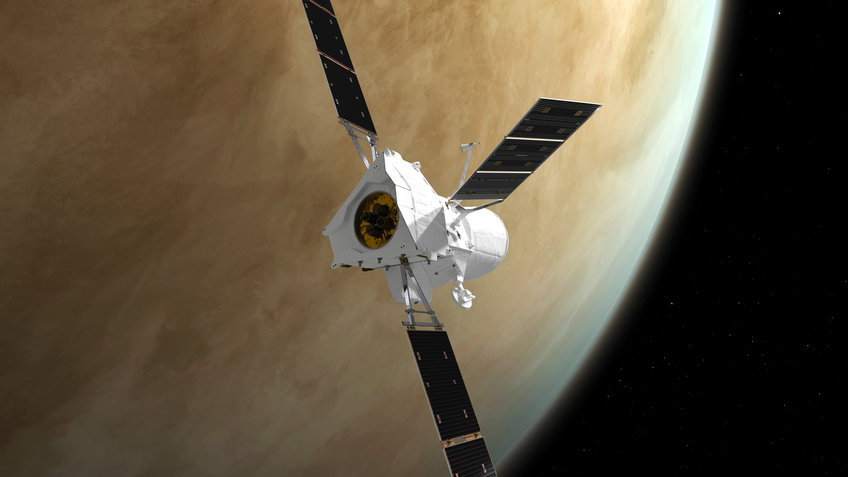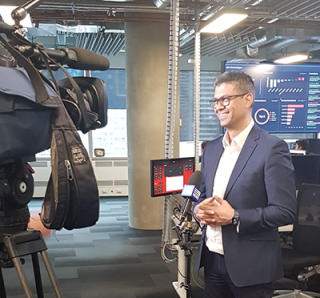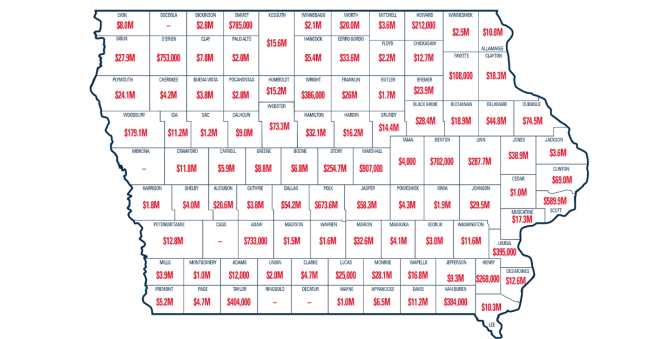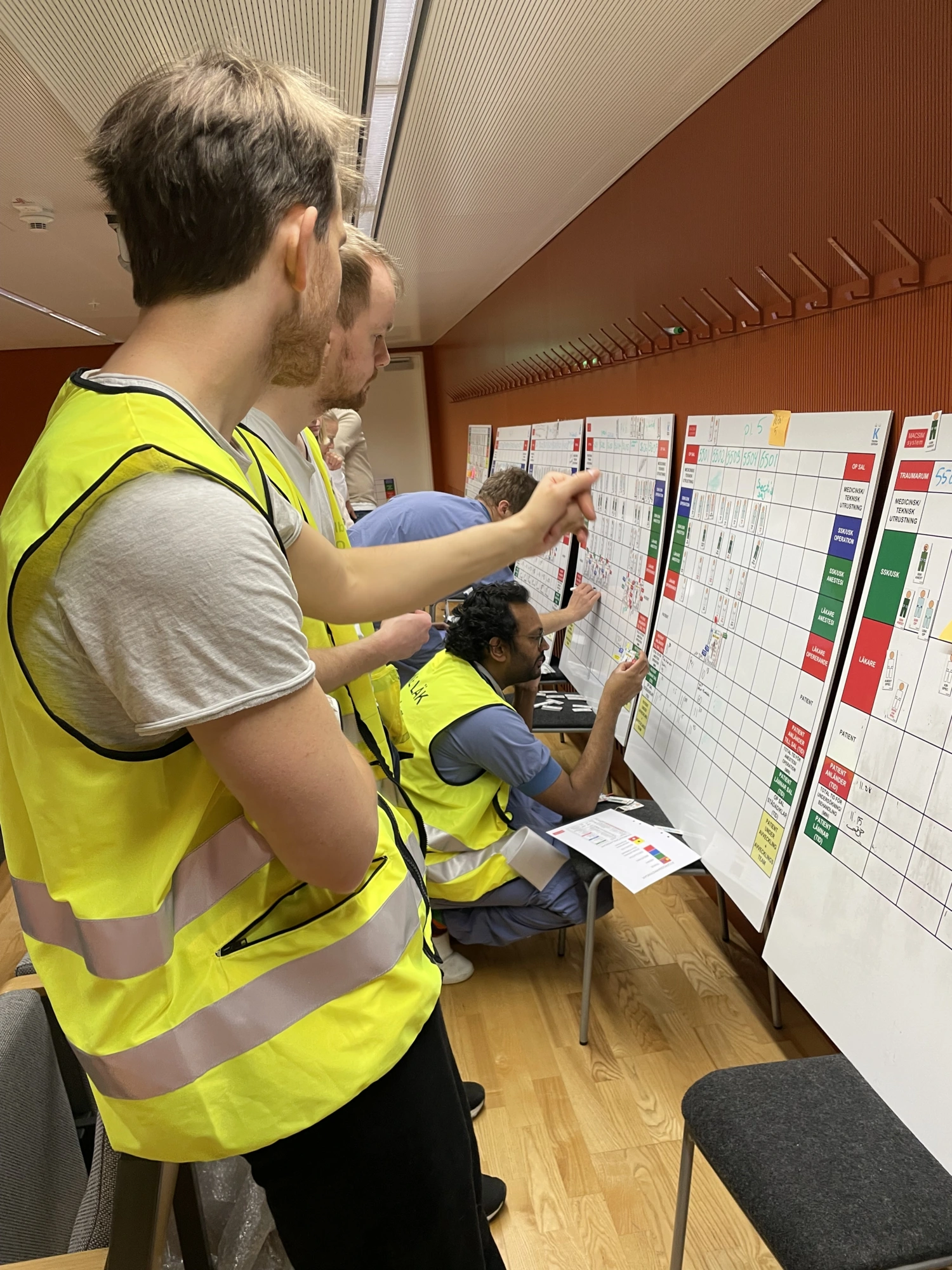State of the University address
6 February 2020
Chancellor, colleagues, students and friends of ANU:
I begin by acknowledging the First Australians on whose lands we meet, the Ngunnawal and Ngambri peoples, and paying my respects to Elders past and present.
And to Uncle Wally, thank you for welcoming us so warmly to these lands where your ancestors have met for thousands of years. It is an honour to meet here, and to be reminded that our campus, this great place of learning, stands on the land where hundreds of generations of Indigenous Australians learned from each other.
Before I talk about the state of the University, I want to spend a moment talking about the state of the world around us.
So far, it has been an exceptionally difficult summer of flame and fear, of hailstones and health warnings.
Smoke from bushfires has polluted our air for weeks, and in the past week, the fires reached our city. Our normally lively campus has been closed multiple times, and our Australian summer has been spent indoors, sheltering from the heat and the smoke.
And then came the ice, and the incredible hailstorm that impacted our wildlife, and dented or destroyed our rooves, our windows, our facilities, and our cars.
Through both the hail and the haze, the thing that shone out was the resilience of our community, and I pay tribute today to the dedicated staff from across ANU who have kept us safe, monitored threats, provided advice, and repaired damage. And I thank every member of staff who supported a colleague or a friend who was doing it tougher than them.
Our community is never stronger nor kinder than when we’re dealing with incidents like those that have given 2020 such a dramatic and terrible start.
And, as Uncle Wally’s presence here reminds us, finding a way to thrive and prosper in the hostility of Australia’s natural environment is the legacy – too often ignored – of 60,000 years of Aboriginal culture. It is a legacy we must do more to understand.
In 2020 we are faced here in Australia with some of the most significant challenges of climate change yet seen on the planet. And we have an emerging threat of a pandemic that is already affecting many of our students, but also our staff, and our alumni. It has restricted the travel of the many outstanding students who would otherwise have been getting ready to travel to Canberra if they weren’t already here.
We don’t yet know the full consequences of coronavirus on our community, but let’s always remember that there are people at the heart of this. And let’s resolve to show the same resilience, the same care, and the same kindness that has brought us through the challenges nature has thrown at us over the past six weeks.
When we’re surrounded by the urgent – by critical incidents and distress – it becomes even harder to step back and think big.
But that is what I want to do today. Our university is at an inflection point: at the start of a new decade, with a new Chancellor, and a Vice-Chancellor – that is me – who will be seeking his second term next week. So if someone else is giving this address next year, you’ll know the meeting didn’t go as I planned…
Our strategic plan is now in its latter stages, and I am starting to think about what ANU might look like at the end of my second term. In other words, what do I want this great Australian university to be, and what must we do to get it there?
I encourage you all to ask yourselves that same question.
Let’s start with the fundamentals. What defines us as a university? And a national university? Let us not focus on parking troubles please..!
For me, the thing that defines ANU is trust.
Since 1946, we have placed integrity and quality at the heart of everything we do. That must never change.
That approach has won us the trust of Australia:
- of the students who study with us;
- the staff who make their careers here;
- the policy-makers who listen to our ideas;
- the philanthropists who donate to us to make the world better;
- the businesses that employ our graduates;
- the society that relies on ANU research findings and believes in them.
Our own Social Research Centre’s findings showed that almost 80% of people trust ANU, while trust in the media is only at 20%.
This is a wonderful position to be in, but it cannot be taken for granted. I welcome the higher standards to which we are held – that is the seal of trust which empowers us. It’s why we met head-on the disturbing reality of being data-hacked late last year. Our approach was to speak openly about it with brutal transparency. To level with our community about the scale of the data-breach and the implications for individual security. And to develop sector leading protections to help stop future intrusions that might undermine our academic freedom, or the safety of members of our staff and students.
Trust is our currency, and having worked hard to earn it, we must work just as hard to keep it.
And the only way to keep it is to invest in, and insist on, excellence in everything we do.
If you have interacted with our students you will know so many of them exemplify excellence.
They are impressive and worldly, solving problems, thinking differently, challenging us and the world around them to do better. Last year, three of the nine Australian Rhodes Scholarships went to ANU students, who will now head to the University of Oxford. This is a great symbol of the quality of our student cohort.
We are privileged to attract such fine young leaders to our campus. And we must remember that this campus, our workplace, is also their home, making us unique among Australian research-intensive universities.
Those students, and their families and friends, trust us to provide a learning environment that is challenging, stimulating and cutting-edge; and a home that is safe, welcoming and inclusive.
I will not be satisfied with simply meeting their expectations. I am setting this university the goal of delivering a student experience that is as good as the best in the world.
Many ANU students travel from across Australia, and around the world, to a new campus in an unfamiliar city. They will join a cohort of students much smaller than most universities. These students will be their neighbours, and this campus their home.
They have chosen to spend their time and their money – and it’s a great deal of both – on an ANU experience.
ANU will be their university – possibly the only one they ever study at. It will be among the best days of their lives.
How do we validate the trust they have shown in us? By providing the very best experience we can.
And by recognising that all of us – whether an early career researcher, professional staff member or distinguished professor – have a part to play in making that experience among the best available anywhere in the world.
If we are honest with ourselves, we have a way to go before we meet that standard. Let’s ask ourselves the important questions:
- When a student is considering joining us, do we interact with them in a welcoming, friendly, informative way? Is our information accessible and timely? Are we responsive to queries and feedback?
- Do we offer distinctive programs that stand out for their quality, flexibility, and rigour?
- Do our facilities, physical and digital, meet our ‘world-class’ ambitions?
- Do we give every one of our students what they need to succeed?
If we don’t do all of these things, and do them better than every other university in Australia, we are not the national university we strive to be. And we can’t be sure we are finding the best students from every walk of life, and graduating leaders whose enquiring minds, sharp intellects and contemporary skillsets will inspire employers and colleagues.
That is why, I have set this year to be the year of the student experience.
I am asking every member of staff, wherever you sit in the ANU community, to make a commitment: that you will do everything you can to make our student experience the best it can be.
This means improving our practice everywhere we think it falls short. Listening to feedback. Learning from colleagues inside ANU and around the world.
Challenging ourselves with the question: is this what a student joining one of the best universities in the world would expect?
I know what I would expect:
- The educational standards of the best Universities in the world.
- Outstanding research-led teaching.
- A place where the connection between students, academics and professional staff is seamless.
- And degree programs, experiences and opportunities that allow me to graduate as a leader.
Parts of our University do this brilliantly already. But by 2025, every student at ANU should be able to say they received a distinctive education that is second to none. We need to be seen as the Oxbridge / Ivy League institution of the Southern Hemisphere, but with an inclusive and distinctively Australian character.
To help figure out new ways of doing things, later this year we will establish in Kambri the ‘student experience accelerator’ – a space where we can collaborate in teams to try out new ideas and seek real-time student engagement and feedback. We will prioritise this as soon as our campus returns to – but this new initiative will be a great way of bringing the ‘start-up’ mindset to improving our student experience.
Of course students are not the only priority. We have committed to investing in, and insisting on, excellence everywhere at ANU, and by 2025, I expect us to see evidence of that commitment everywhere.
That means investing in research that transforms society – that changes the way people act and think. Since our researchers train the future leaders of Australia, our region, and the world, we have to do that well.
It means ANU becoming the public policy university. We will be the ‘brains trust’ to the policy-making community – listening, not preaching – and being trusted to suggest, refine and road-test policy solutions. The government is entitled to expect this from its national university, which it endows with the National Institute Grant, and we must exceed their expectations. I cannot emphasise enough: this is not an optional extra for ANU: this is a core reason why we exist – and we must excel, and do better than we have been doing.
And it means being the place of choice for Aboriginal and Torres Strait Islanders to engage in higher education and undertake research. Why? Because they trust their peers when they tell them that ANU is a community which embraces and celebrates the culture and contributions of Australia’s First Nations peoples. And if that message is to be shared, we must be as good as our word and embed Indigenous culture and learnings across our campus, and attract many more Indigenous staff and students. More on this in a moment.
Lastly, by 2025, I want every single one of you to know you are working in one of the best environments in the world — a University you are exceptionally proud to work at, because any other place will be a step down…
We will be a workplace that is equitable, collegiate, that nurtures talent and provides the best working conditions of any University. Now, to achieve this, I can resort to having policy drafted, create incentives, beg, plead and cajole.
But in the end, the only way to achieve my ambition – and I hope our collective ambition – is if the people who work here make it so. I ask that you remember the kindness that emerges every time we are faced with a crisis – and let’s try to be that workplace every day, not just on those difficult days.
I also ask that you to reflect on how you can contribute to these ambitions. What can you do in your role to achieve this level of excellence, and to build Australia’s trust in us? I look forward to hearing your ideas.
If Australia is to trust its national university, we must do everything we can to resemble the country we seek to serve.
If we are honest, we haven’t yet done enough to look like Australia. Talent exists in every community, in every ethnic group, at every age, and is not symbolised by physical abilities or conventions. Our Admissions, Scholarships and Accommodation scheme is starting to succeed in widening the range of students who come to ANU this year, but we have a long way to go before we can truly say the nation’s microcosm is its national university.
One of the places we have the most work to do is in attracting new Indigenous talent to ANU. Less than 1% of our domestic students identify as Indigenous – while the national figures says 3.3% of the Australian population is Indigenous.
There is so much talent, potential and imagination that we are missing out on. This is a gap we must address.
And if you wanted to see what that talent, potential and imagination looks like, visit the Tjabal Centre, where Aunty Anne and her team can introduce you to the many brilliant and committed Aboriginal and Torres Strait Islander students who have found their academic home here at ANU.
There is no question we should be doing more – much more – to make this University accessible to as many Indigenous Australians as we can. Our campus is enriched when we embrace diversity and reflect the nation.
That is why I am so proud and delighted to announce the creation of a new sector-leading Scholarship scheme – the Kambri Scholarships – that will provide any indigenous student who is admitted to ANU, the financial, academic and pastoral support they need to thrive in our community. This will enable us to welcome many more Aboriginal and Torres Strait Islander students to ANU, while ensuring they are supported to complete their degrees.
How can we guarantee that this money will be available every year?
Council has committed to create an endowment of at least $50 million dollars, where the University will match dollar for dollar, philanthropic gifts until we reach our goal. The University has provided several million dollars of seed funding to ensure the program can start this year. The investment returns will fund the program in perpetuity, so never again will Indigenous students miss out on the ANU experience.
If you’re inspired by this and want to be part of it, or know someone who would, you can find more information through the Kambri Scholarships button on the ANU website, or speak to Advancement colleagues.
And, in years to come, the Australian National University can look back on this moment as the time we made real our commitment to Indigenous Australians. And they, along with their fellow graduates, will become the leaders Australia turns to in order to tackle the problems their own generation is facing.
This is our University showing leadership.
And there is another domain where we must also lead.
An almost universal concern across our campus is the impact of climate change. The world is looking to us, and other leading universities, for action and solutions, so the Chancellor and I resolved that we must do something significant.
Therefore, I have asked our Climate Change Institute to convene a group of our staff and students, to chart how ANU can not only become carbon neutral – but carbon negative – as fast as possible. There is much that we can do now, and what being carbon negative means will evolve over time. But if this university and our students and staff are prepared to be part of the solution, I think we can lead the world – starting this year – and show how we don’t have to wait until 2050 or beyond to act.
This group will provide a pathway, and I hope all will join us in this action. Each of us will have to look at the contribution we can make, on and off our campus. That is the only way we will succeed.
This is ANU meeting its responsibilities. The trust Australia places in its national university: to confront the biggest issues and create leaders with the capacity to solve the issues we haven’t yet imagined.
Those leaders must inspire us by being willing to take a stand. To speak truth even when inconvenient. To be authentic. And to win the admiration of their community.
They have to be trailblazers and pioneers, with the strength of character to do difficult things for the first time.
Which brings me to our Chancellor.
A leader of distinction, who has served in cabinet under three prime ministers and across three portfolios, including Foreign Minister – the first woman to serve in that capacity.
One of just 15 people in Australian political history to have been elected Deputy Leader of the Liberal Party – and the only woman to have done so.
Elected seven times to represent the people of Curtin in the House of Representatives – the first woman member for Curtin – Julie Bishop achieved global recognition as Foreign Minister for her response to the shooting down of MH17.
She secured Australia’s election to the UN Human Rights Council, on a platform of good governance, freedom of expression, promoting gender equality and the rights of Indigenous peoples.
Julie was also responsible for creating the New Colombo Plan, which has so far made over 60,000 awards to Australian undergraduates for study and travel in the Indo-Pacific region.
By any measure, this is an exceptional record of public service. Her straight-talking honesty won the trust and respect of the Australian people – and of leaders world round.
And now we are honoured and delighted that her service continues, as one of our most distinguished and globally recognised – you guessed it! – the first woman – Chancellor of this great national University.








